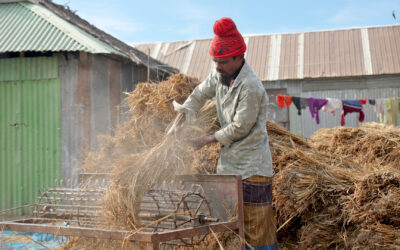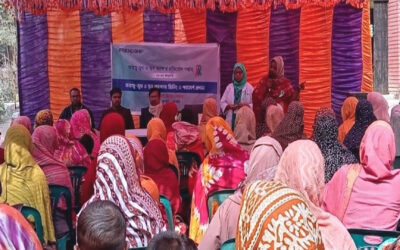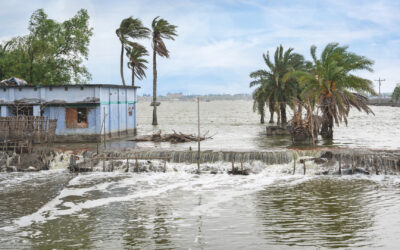The Youth of the Chars Share Their Stories of Hope
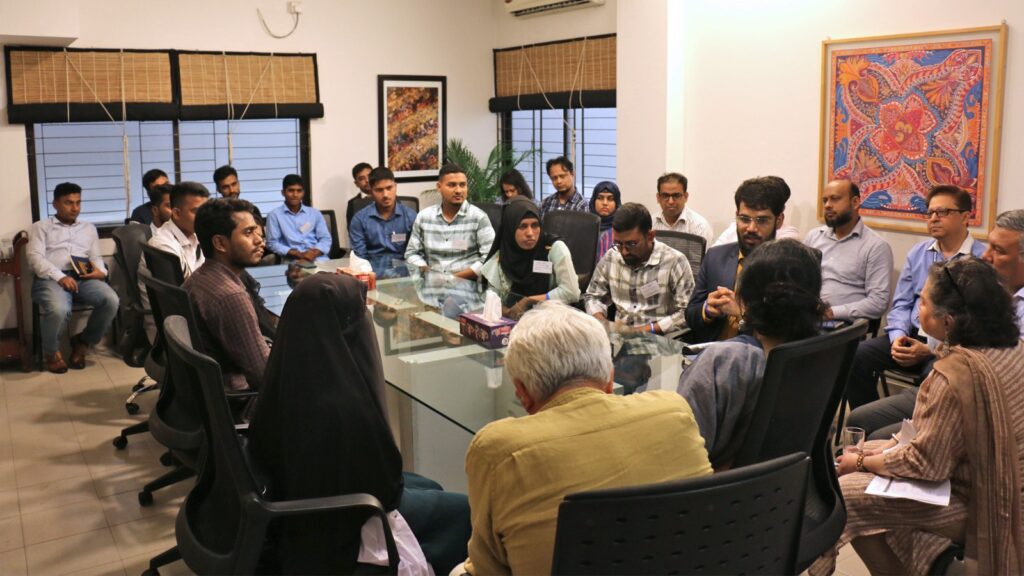
by Iffat Ara Sharmeen,
October 7, 2024
In a heartwarming get-together organised by the Friendship Career Guidance Cell (CGC) on 26 September, 14 Friendship school alumni from Kurigram and Gaibandha reminisced about their inspiring journey with Friendship, shared their plans for the future, and spoke about the importance of youth participation.
Friendship turned the tide 22 years ago by setting up essential services for the marginalised communities such as schools at a time when access to even basic services and infrastructure was negligible in the remote, impermanent islands that Friendship operates in. Today, Friendship schools operating in the chars as well as their successful alumni stand as a testament to the profound impact of opportunity and hope. On the 26th, alumni from several Friendship schools engaged in an emotional meet and greet and shared their anecdotes of resilience, hope, and success.
The occasion kicked off with a warm welcome from Brig. Gen. Ilyas Iftekhar Rasul (retd.), Senior Director and Head of Education at Friendship. He discussed the current educational status of each alum, their career aspirations, and their future prospects, fostering a meaningful dialogue about their personal growth and ambitions.
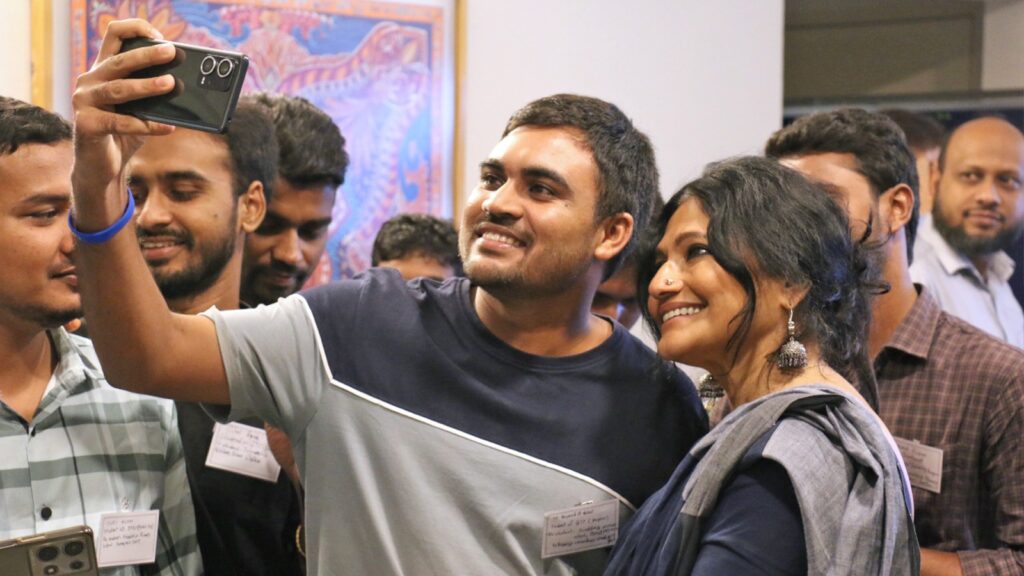
“My dream was to become a doctor. Being the eldest daughter in the family, my parents were concerned of me living so far away. They believed my marriage would be delayed. When I initially got admission in civil engineering at the Shahjalal University of Science & Technology Sylhet (SUST), they feared that I would be too far away. After Friendship helped me get a scholarship at Holy Family, my family and I were extremely happy because I was going to study MBBS for free in Dhaka and not go as far as Sylhet. It was a win-win for all of us. Today I had three exams since 8 AM. I came here to meet Runa Apa as soon as I was done, for everything Friendship has done for me,” said Bipasha Khatun, MBBS Student at Holy Family Red Crescent Medical College Hospital and Friendship Primary School Chowmohon alumna.
“A big difference between the government primary school in our village and Friendship school was that the government school did not make studying enjoyable. We were taught in an entertaining and interesting way at the Friendship School. They provided us with notebooks, sports and even art equipment. We enjoyed those five years a lot,” added Mahbur Rahman, a pharmacy student at Dhaka University and Friendship Primary School Sidhai alumnus who also had received an offer from BUET, the premier engineering school of Bangladesh.
Coming from difficult circumstances and fully understanding how much of an effect it has, these students are actively advocating for systematic, sustainable reforms at the grassroots level, using their voices to represent the chars as much as they can in the mainstream narrative. In addition to the standard education board curriculum that they learn along with their peers, Friendship schools include a Code of Ethics that inculcates good citizenship and an understanding of ethics, and encourages active participation in the uplifting of their communities, along with raising awareness about important issues pertinent to where they live.
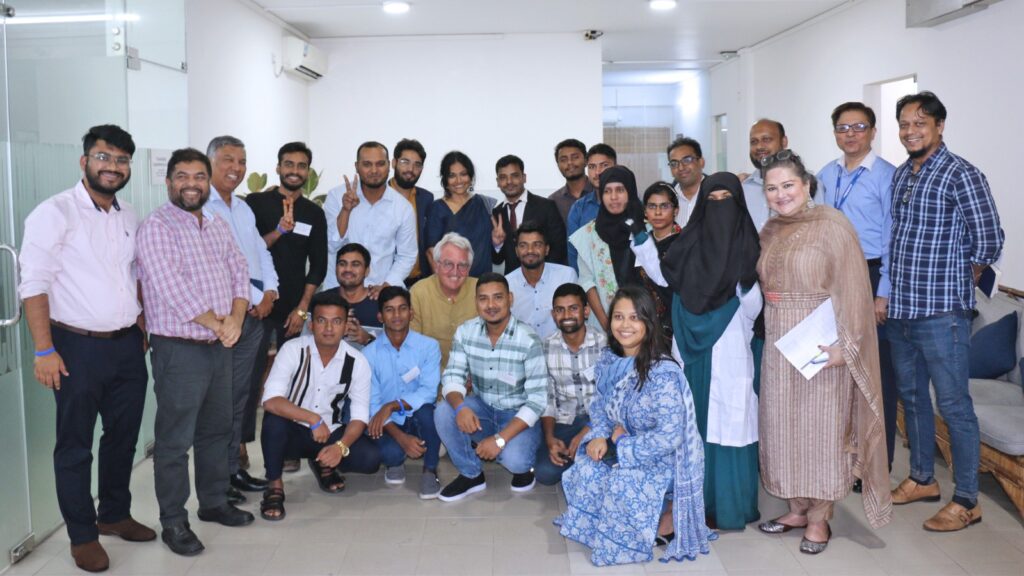
“Our policy making must be a constructive system that empathises with the needs of the people and includes those in the rural areas. The policies and implementation we experience in reality is too different from what we learned in books. Legislative knowledge and leadership must be gained and applied,” said Asadul Islam, MBBS student at Rangpur Medical College and a Friendship Primary School Nawshala alumnus.
The alumni were elated to see Friendship founder Runa Khan and introduced themselves one by one. An emotional Runa Khan was delighted to see so much potential in one room. She mentioned that setting up and keeping schools alive in the chars was a monumental feat undertaken by Friendship, questioned by everyone. It was difficult to explain to people that education can give hope. Students often drop out to pursue work or end up in child marriage. Teachers were unavailable. Secondary schools were practically unthinkable, but Friendship has weathered each storm one after another. She expressed her hope for these students, that they will carry forward the responsibility to support the very community that raised them.
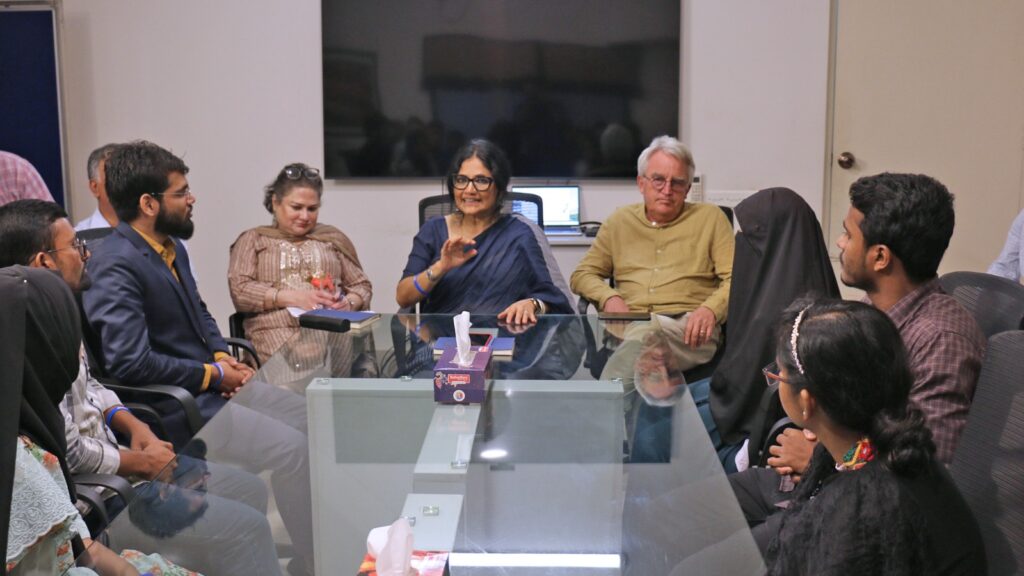
“We were certain that the primary education from Friendship schools would lead the youth to be good students and great humans. Donors have seen the positive behaviour, speech, and lifestyles of areas with Friendship schools, as opposed to those without,” said Marc Elvinger, Co-chair of Friendship International
Friendship’s community-led approach to education has been the key factor. Teachers were chosen from the char communities and trained by Friendship. They taught children from their own community and took it as a matter of personal pride to see their students excel. Teachers were given pre-recorded lessons from Dhaka and worldwide. Friendship schools can be dismantled, packed up, and shifted to another location. This mobility ensured that students could immediately go back to their classes after a natural calamity. These innovative measures kept the momentum of learning intact among the children.
Simply teaching the students was not sustainable. Setting them up for success in the long run was essential. Friendship Career Guidance Cell (CGC) has been tirelessly working in this regard. They support the Friendship School alumni to get easier access to higher studies, high-value skill development training, job placement opportunities, leadership development, and extracurricular activities.
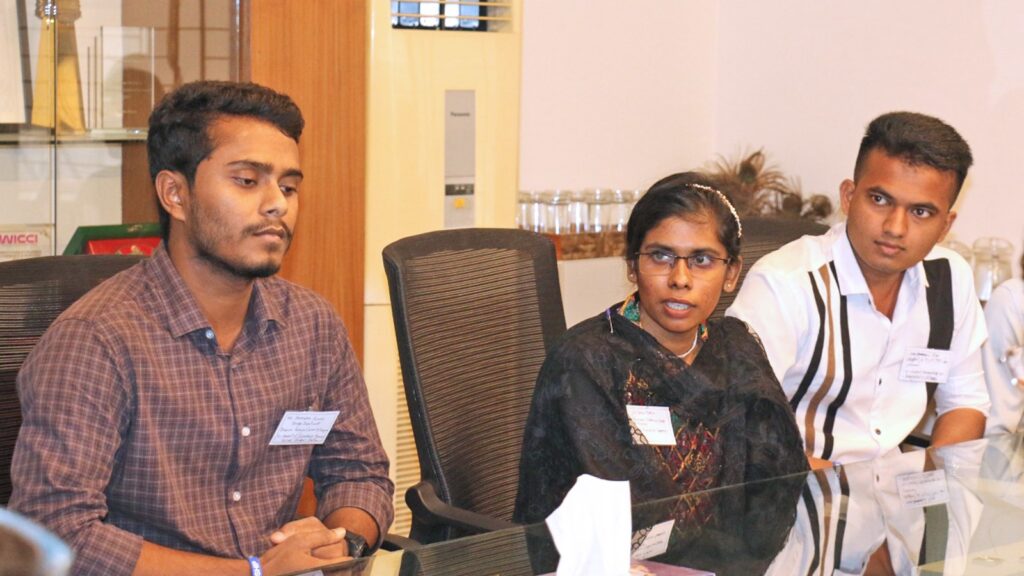
To date, 154 school graduates have found higher education opportunities across renowned universities and medical colleges in Bangladesh. 253 Friendship primary school graduates secured admission to secondary colleges. 186 school graduates were prepped to enrol in skill development and technical training programmes. Since 2021, 110 Friendship school graduates have found employment within Friendship as well as national armed forces agencies. The CGC also supported 62 Friendship Secondary Schools in participating in olympiads, debating competitions, and other extracurricular activities. Friendship school students have also attended UNFCCC’s COP28 and represented themselves at the European Youth Event at the EU parliament in Strasbourg.

